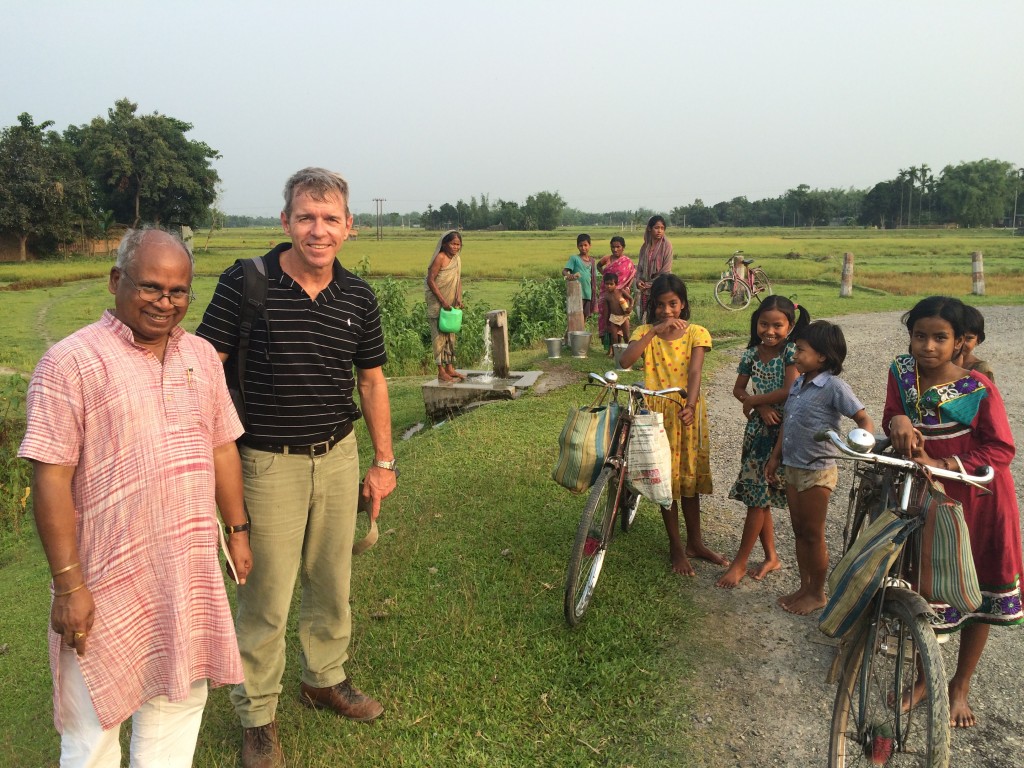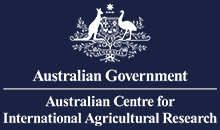1) Rajeshwar Mishra 2) E Schmidt 3) Apurba Chowdhury and 4) Subrata Majumdar
The site selection process, in Cooch Behar (India), has now been finalized. The team from USQ, IWMI, UBKV and CDHI visited and interacted with male and female farmers in the short listed villages of Dhaloguri and Uttar Chakoa Kheti(UC). Women are important stakeholders in the project. Therefore, the authors intensively interacted with the women farmers in the two villages. The main objective of the interaction was to have women farmer’s perspectives on the LWR project. Focus of the discussion veered around: Goal of the project; how the women farmers perceived their role in the implementation of the project and what strategy they considered appropriate to structure and locate various interventions. Women were encouraged to have their free and frank opinion in order for the project to generate objective knowledge to be used to maximize their agricultural and livelihoods opportunities. Use of anecdotes and examples were made to drive home nuances of the questions.
To begin with a question was asked about whether they would like physical interventions which could bring short term gains and benefits or they would like to have long term gains. Research based interventions would unravel various issues which adversely influenced their agriculture and livelihoods opportunities. The research outcome would help address various issues and may foster innovation which can be proactively used in a number of ways. Interestingly, the women farmers endorsed the research format of the intervention and preferred research led knowledge to physical intervention.
Another aspect of the discussion touched upon their possible role in the project -what would they do-how would they relate to the research activities? The women, in unison, underlined their dominant role in agriculture and revealed that they were involved in various agriculture and water management activities as much as the men do. Their special emphasis was over water management priority -they emphasized that besides agricultural use of water they had to manage water for household activities-they experienced the brunt of water scarcity more than the men do. The LWR was much more important for them!
On structuring and locating various interventions they considered an inclusive approach and strategy to be appropriate and effective. Men, women and other stakeholders need to collectively reflect and evolve interventions. To a question –‘whether the men would value their insight’? they sounded confident- ‘yes they would do’. In support of their confidence they informed that they were managing Self-help Groups (SHGs), mid-day meal program and were effectively participating in the local level governance through Pasnchayats and forest management committees. According to them they have created undeniable examples of their participation in various real life activities. Their acceptance, in the LWR, project would be forthcoming from all quarters.
What does the short and succinct conversation with the women farmers convey? We feel that women are quite enthusiastic, rational and objective. What is needed is encouragement and support. The project should be able to enlist important contribution from them by using right approach and participatory and reflective pedagogy which can help them rediscover themselves!
1) Visiting Director, CDHI, Jalpaiguri, North Bengal, India
2) Deputy Director, NCEA,USQ
3) Professor of Plant Pathology, UBKV, Cooch Behar
4) Executive Director ,Programs, CDHI ,Jalpaiguri and Member of the LWR research team







